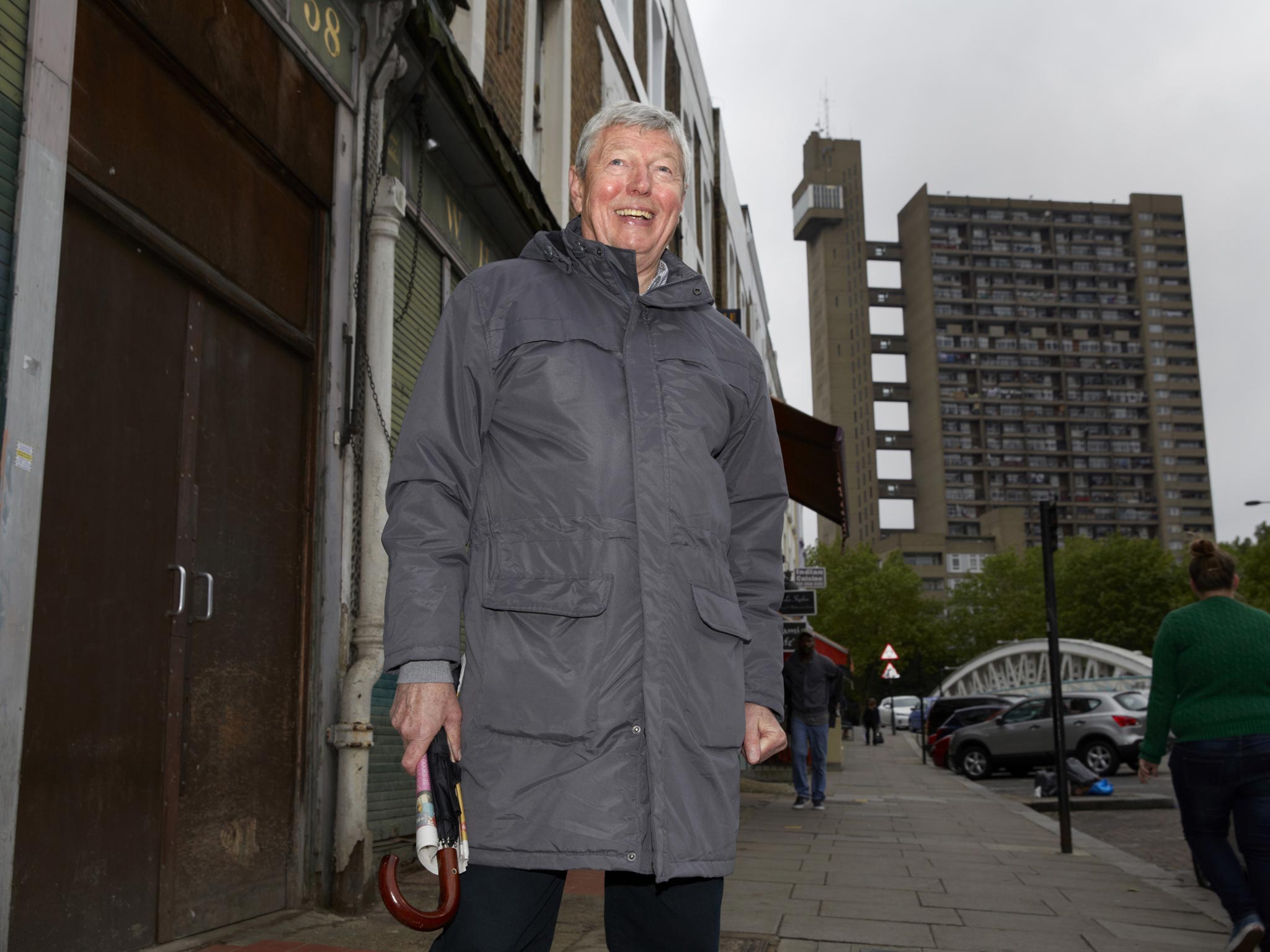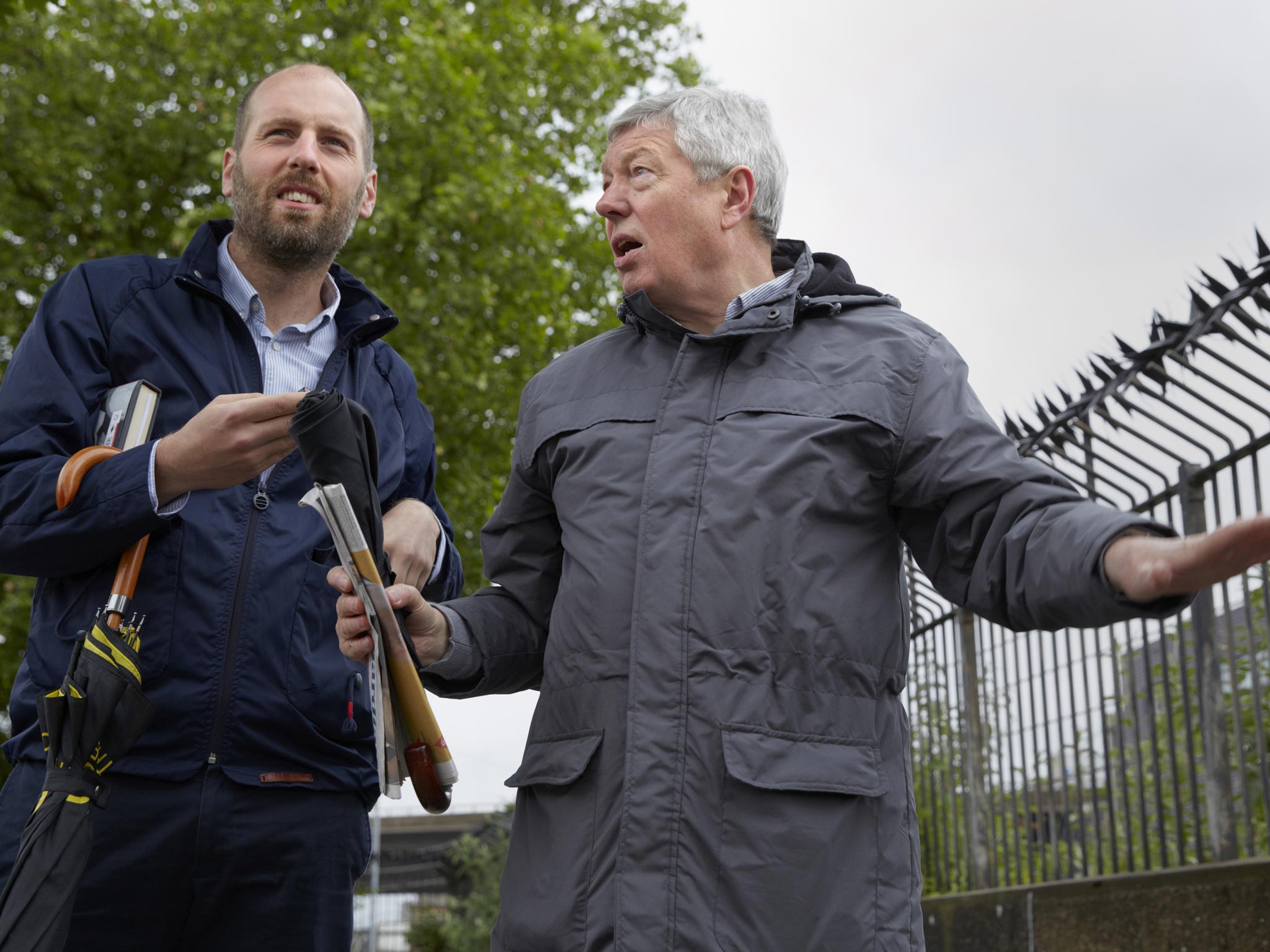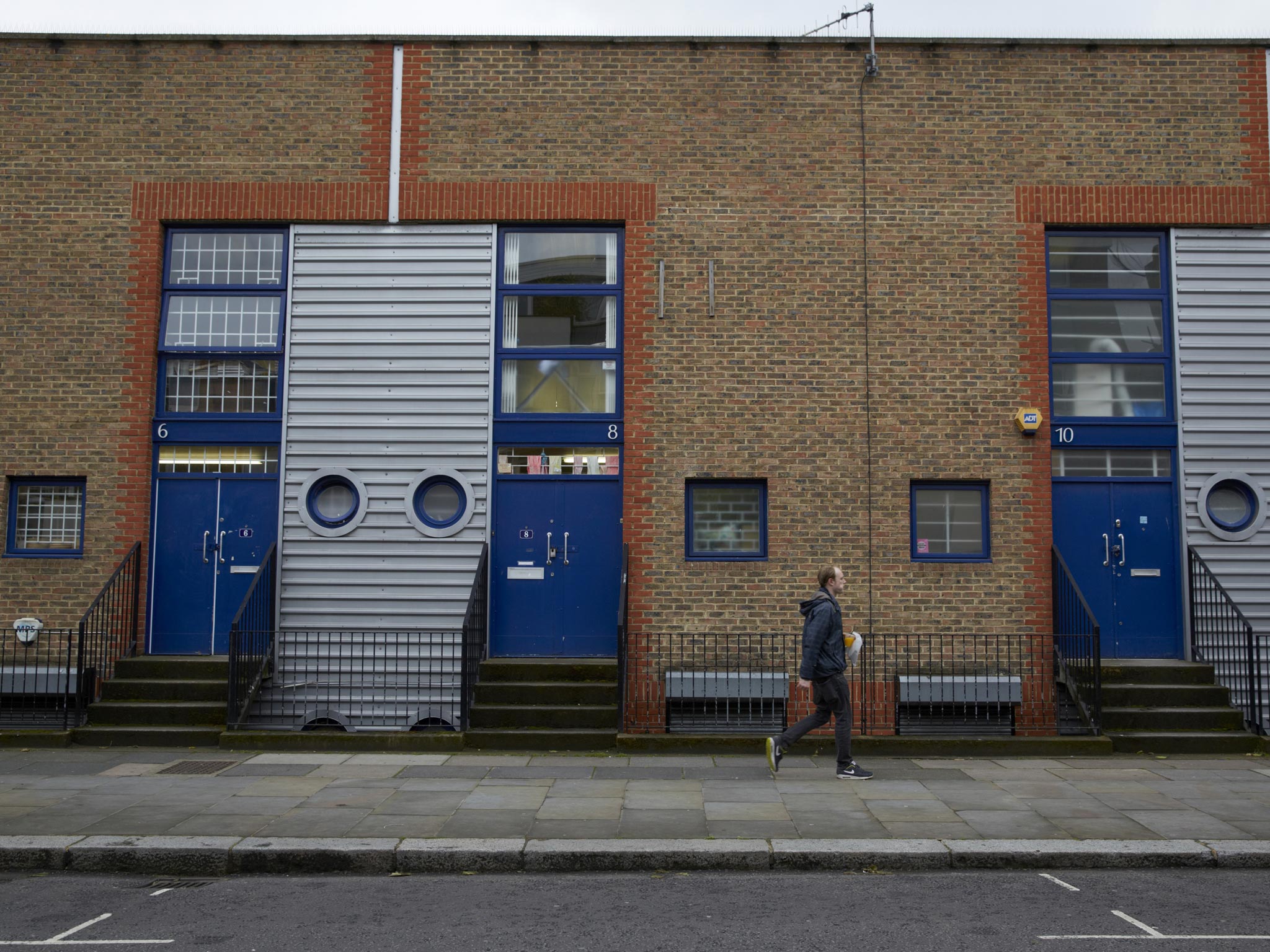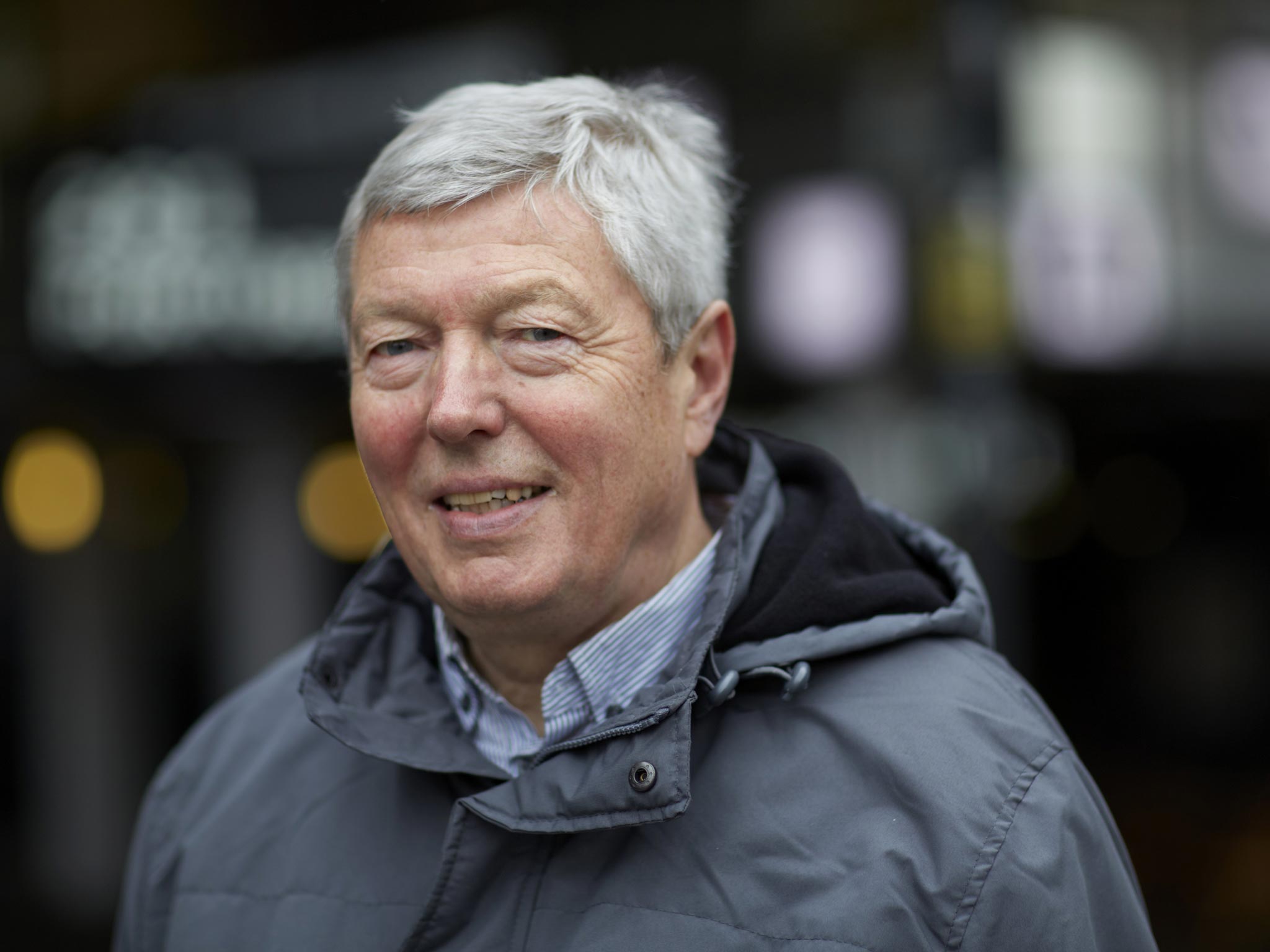A stroll into the past: As his memoirs continue to garner accolades, former Home Secretary Alan Johnson retraces the steps which led to success
Few politicians come from more humble beginnings than the former Home Secretary Alan Johnson. He joins Simon Usborne for a stroll into a part of west London which has changed both radically – and not very much at all

Your support helps us to tell the story
From reproductive rights to climate change to Big Tech, The Independent is on the ground when the story is developing. Whether it's investigating the financials of Elon Musk's pro-Trump PAC or producing our latest documentary, 'The A Word', which shines a light on the American women fighting for reproductive rights, we know how important it is to parse out the facts from the messaging.
At such a critical moment in US history, we need reporters on the ground. Your donation allows us to keep sending journalists to speak to both sides of the story.
The Independent is trusted by Americans across the entire political spectrum. And unlike many other quality news outlets, we choose not to lock Americans out of our reporting and analysis with paywalls. We believe quality journalism should be available to everyone, paid for by those who can afford it.
Your support makes all the difference.Alan Johnson stands, ready to deploy his umbrella, beside a wet mini-roundabout in west London. The brutalist, 31-storey Trellick Tower, which would cast a shadow over him if it could, had not been built when he was born here in 1950. The pub on the opposite corner had a trough outside for the carthorses of thirsty rag-and-bone men. Inside, Alan's father used to play piano, until he ran off with the barmaid of The Lads of the Village, another local that is now a wine bar called Frames.
Last week, Johnson received the Orwell Prize, days after winning the Ondaatje Prize for the work that best "evokes the spirit of a place" – this place. The former Home Secretary's book, This Boy: A Memoir of a Childhood, had already earned universal acclaim. Now 64, he has returned to retrace the steps which led to success that few here could have imagined when potato sacks were hung as curtains and broken glass "seemed to grow in the gutters like grass in a hedgerow".
Goldborne Road leads southwards from the roundabout, over the Great Western Railway, towards the posh end of Notting Hill. "Hugh Grant and Julia Roberts never made it up here," Johnson says. After Richard Curtis made his film, Tory MPs who lived here became known as "the Notting Hill set". "George Osborne told me how much he had enjoyed the book," Johnson says of the Chancellor. "He said, 'You know, I come from round there'. I said, 'Well, bit of a different era and a different place, George.'"
Probably as a result of estate-agent swagger, the borders of "Notting Hill" have spread, but Johnson knows his manor as North Kensington, Kensal Town or just "The Town". Gentrification has been slower, but time and politics have banished the desperate conditions into which the MP for West Hull and Hessle was born. "If anyone thinks the Fifties was an age of peaceful innocence, come with me," he says. "I'll show you the shit that we had to put up with."
People "from Dickensian times would have recognised Southam Street", Johnson goes on. The road used to run hard up against the railway. Only a short section survives, but it's the block where Steve and Lily Johnson raised Alan and his sister, Linda. Alan takes a few steps from the pub on the corner, which he knew as the Earl of Warwick (it's now the Earl of Portobello) to what used to be number 107. A short terrace of modern, commercial properties now stands in its place – a textiles designer, art studios, offices. "There was a Bentley parked outside the last time I was here," Johnson says.
In 1950, the family lived in one damp room of a property that had been condemned before the war. There was no electricity and a single, shared toilet in the yard. Lily scavenged coal from the overflowing trucks that delivered warmth to Holland Park, where she also cleaned houses of the sort that George Osborne would have known. At night, Alan stuffed his ears with paper to keep out the cockroaches, beetles and earwigs. "I used to pin football posters to the wall," he recalls. "But then you'd get these little black bits over them. It was fly shit."

Johnson's book follows his first 18 years, until he left London and became a postman, the job that later launched him into trade unionism and the Labour party. It is a memoir but also a biography of his mother. Lily was an Irish Liverpudlian who married Steve, a charming painter-decorator and pub pianist. A lady's man, a betting man and a drinking man, he was never a father, even before he abandoned his family when Alan was eight. Without his income, Lily was forced to take on more jobs, which only worsened a long-standing heart condition. She died when Johnson was 13, leaving Linda, 16, in charge.
Walking through an open gate and behind the new block to a narrow car park, Johnson stands on the spot where, 60 years ago, Lily was photographed in her tiny yard. The image appears in the book. She holds a cigarette; sheets dry on a line behind her. "She had such a dreadfully short, sad life," Johnson says. "But she wasn't a sad woman. I wanted to recreate her on the page. Could I make people learn that Lily was in this world and honour the heroism of her and my sister; these two amazing women?
"Let's go down Goldborne Road," Johnson says. It's Tuesday morning and Britain is reacting to the results of the European elections, in which race and immigration have played a sometimes ugly part. A plaque above the door of the Warwick commemorates Kelso Cochrane, an Antiguan carpenter whose murder by a gang of white youths on this corner in 1959 helped to fuel tensions along lines of race.
Johnson's memory of the murder, on his ninth birthday, forms a chapter of his book. Lily remembered it better, having watched the "hollow-cheeked Teds", as Johnson describes them, push and shove Cochrane before he was stabbed. She shouted at one to stop and made eye contact with him, but she never went to the police for fear of reprisals.
By then, Oswald Mosley was a malignant presence in North Kensington. The former fascist leader travelled here after the 1958 Notting Hill race riots to stand in the general election a year later on an anti-immigration platform. "He stood here on the spot Kelso was murdered to hold a public meeting," Johnson says. "He was exploiting Kelso's murder as yet another well-heeled saviour of the white working class. We've seen a whole range of them since – Farage is just the latest."

Mosley failed miserably and one of the enduring legacies of that era would be the Notting Hill carnival. Decades later, how depressed is Johnson about contemporary attitudes towards immigration? "There's always big potency in the fear of others," he says. "It was the Irish first. If you didn't come from 'raand 'ere'; if you weren't from norf Kensington like, then 'What you fuckin' doin' 'ere', you know? They had signs in shop windows: 'Room to let: no Irish, no blacks, no dogs'. But this idea of being against someone coming to take your jobs never really took off in London, and Ukip did terribly here. In that sense, we've moved on a huge amount."
Johnson believes that Ed Miliband's only response to Ukip outside the capital is to "go out and aggressively make the argument for Europe and for immigration, not tack to the wind".
Over the bridge, Goldborne Road starts with rows of shops. On the corner of Wormington Road, where Johnson's old infant school is now a college, there stood a shop that sold only faggots, pease pudding and saveloys. On the opposite side, past what is now Les Couilles Du Chien antique store and L'Etoile Patisserie, Baalbak Lebanese restaurant occupies Alan's favourite place in London – Renee's Pie and Mash Shop. "In the holidays, we'd come down and pay sixpence for a pie, two big dollops of mashed potatoes and a load of liquor over the top. You couldn't get a pie like that anywhere else."
Johnson's nostalgia for smells and tastes doesn't obscure the darker memories of his childhood, a theme reflected in his book, which is all the more powerful for including not a single pen stroke of self-pity or regret. When in London, he now lives in leafier Crystal Palace, south of the river. But, he adds on the pavement, where nobody recognises him today: "This is where I come from. It feels like home. Your childhood stays in your mind as the place where you belong; where your roots are."
"The Town" as he knew it has transformed. Has he? "Well, I don't call my evening meal "tea" any more, but I'm still working class", he says. "I'll never leave food on my plate. Your income might change, but you are who you are. You also have to remember, unlike many people whose life changes when they go to university, I never did. I went from here and lived on a council estate in Slough for 19 years. If there was any transformation it was coming into parliament when I was 46."
Yet, despite rising from the slums of Southam Street to serve in three cabinet positions (he was also Secretary of State for Health and then Education, and a shadow minister until 2011), Johnson says that perceptions of him in Westminster were harder to advance – until now. "Most MPs get asked what their book of the year is, or their summer holiday reading," he explains. "I was dying to talk about books and poetry and all the things I've loved since I was a kid, but no one ever asked me. I suppose I was stereotyped." Now everything has changed. "I even get asked to write book reviews – and that's just fabulous," he says, grinning.

Johnson pauses to peer into the playground of Bevington Primary School, just off Goldborne Road. His fondness for reading – initially a gift from his mother and the few keepers of books he knew – developed here and at his third school, a grammar in Chelsea. George Orwell was an early hero. "My English teacher had taken us through Animal Farm and gave me some money from the school kitty to buy more books," he says. "I picked up Orwell's Keep the Aspidistra Flying. I loved the idea that Gordon Comstock, the hero, renounces money to spend his time writing in a garret. That's when I got interested in writing. It only took me 50 years to do it."
Johnson continues south to the junction with Portobello Road, where the signs of gentrification are clearer. An Ally Capellino boutique faces the western branch of Pizza East, a restaurant with roots in Shoreditch. Does he think that he could make the same leap today, from here to the heights of politics and publishing? "What, leave school at 15 with no qualifications and end up as a government minister?" he asks. "I don't think I could. It seems impossible now to rise up.
"In my time, you could join the Post Office as a telegram boy, take the Civil Service exam and move into Whitehall," he says. "You could become a court reporter on the local paper without a degree and end up as a Fleet Street editor. It doesn't seem to happen like that any more. Clegg, Miliband and Cameron all have that same background: PPE, coming in as a special adviser, then finding a seat. We're tackling ethnicity, we're tackling gender and disability – but we've lost something of the mix of social class."
As someone who could make – with total integrity – the cynical claim of most politicians to champion "ordinary, hardworking people", does Johnson not feel a desire – or even responsibility – to return to the front bench and one day lead his party?
"No, no, they can manage perfectly well without me," he says. "I've moved on to a different phase in my life and wouldn't want to return to that same discipline and media scrutiny. I wouldn't want to put my family through it."
Johnson's tour ends under the elevated, six-lane A40 Westway, which tore a path through the area in the 1970s. He's off for lunch now with an old mate from the Post Office. He plans to run for re-election in Hull next year ("If they'll have me") and is now finishing the second volume of his memoir, Please, Mr Postman, which is due to be published this September (like This Boy, its name honours a Beatles track – Paul McCartney is another of his heroes).
He remains modest, yet immensely proud of his achievements and second career.
"If you win prizes like that and get such a good reaction from critics, it kind of tells you that, actually, you've found something you can do here," he says. Yet no one would be prouder than Lily. "She wanted me to be a draughtsman, so I'd have to explain why I didn't follow her advice and ended up as Home Secretary. But no, she'd be amazed, just totally amazed that I could have risen to be an MP and minister." And an award-winning writer...
"A polymath!" Johnson replies, before leaving. "I'm a polymath now."
Join our commenting forum
Join thought-provoking conversations, follow other Independent readers and see their replies
Comments